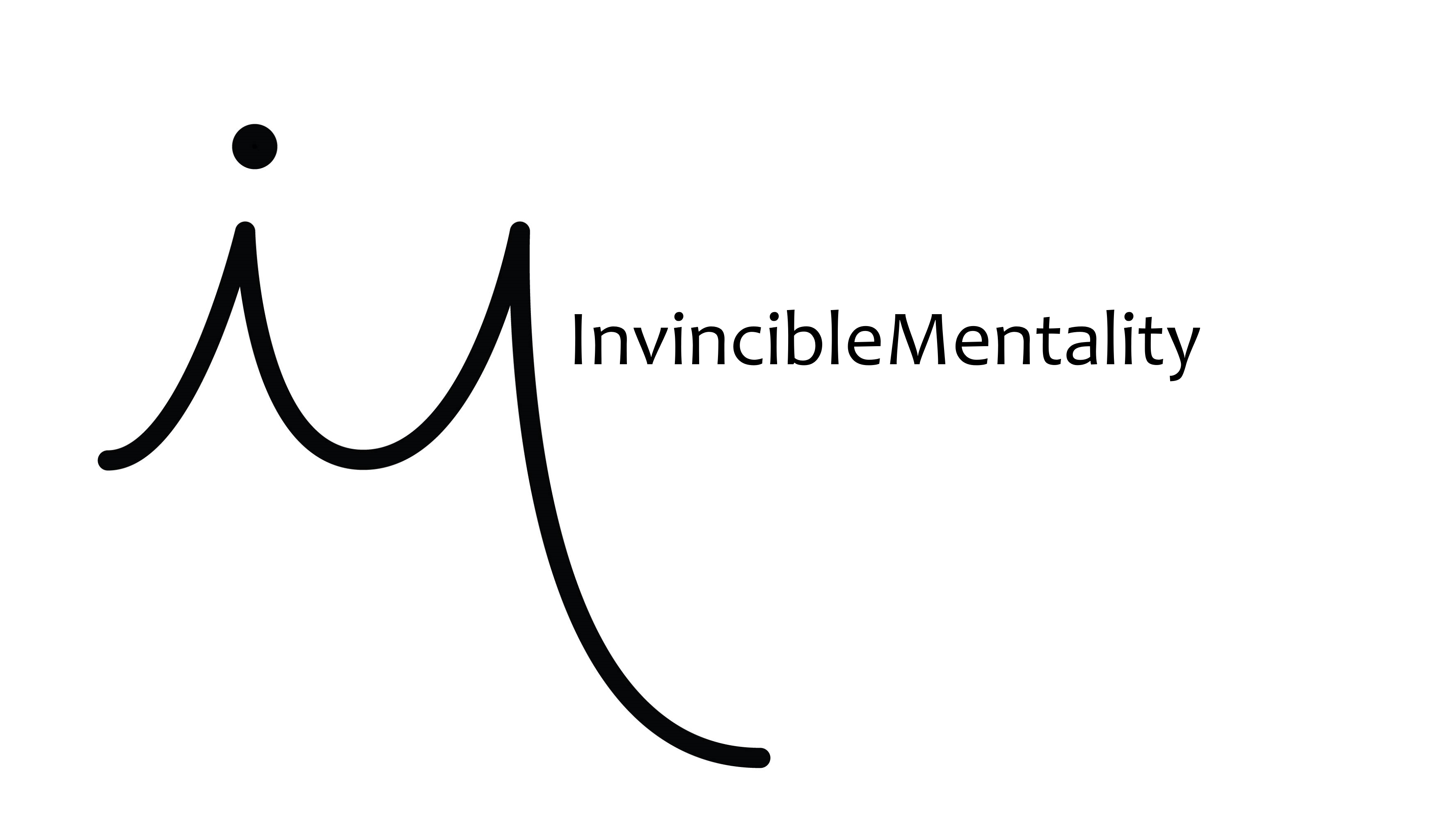Fear is such a beautifully complex human mechanism which has a significant impact on our lives.
My aim is for us to understand fear to a point where we can control how fear affects us and not the other way around.
This resource will dive deep down into helping us understand what fear is at the core, and guide us on what we can to overcome this powerful force.
Are you ready for this? This article is 2500 words long… we are going in.
What is fear?
You momentarily freeze.
You feel your heart beat.
Your palms get clammy.
A warm wave flows through your body.
You start to shake.
Your mind can’t think straight.
You become aware of every little action you are doing.
You feel frightened.
This is fear.
Fear is a feeling we get when we are uncertain of what lies ahead. More specifically, it is a feeling we get when we are uncertain of the negative consequences that may lie ahead:
Who are these people?
Will they like me?
What if they don’t like me?
What if they think I’m weird?
How will my speech turn out?
What if I mess up?
What if everyone judges me?
The uncertainty of what lies ahead takes us out of our comfort zone, which often encourages us to back out and avoid the scenario in order to not risk facing that negative event from potentially occurring and affecting us.
Take a moment to think about some of the times you have backed out of a scenario in fear that something negative may happen. It may be so insignificant such as declining to do a little speech back in middle school in fear of being laughed at, or something incredibly impactful like deciding not to move city or country in fear of having to create new connections and relationships.
Regardless of the decision made, fear is the threat of the negative implications that may be caused by that particular scenario.
An important point to note is that fear is the threat of an event potentially occurring; in a lot of instances, the negative scenario that we conjure up in our minds is unlikely to happen. That being said, we still often opt to avoid the event completely and miss out on all the positives that could be gained from it.
Why do we feel fear?
Fear can be frustrating when it stops you from doing you want to do, like wanting to deliver a speech at the conference you were invited to, or joining a club society where you do not know anyone.
Why are we getting this feeling when we know doing that action will most likely be beneficial?
In the most simplified and un-sciency way possible, fear is a stress stimulus unconsciously generated by the brain which prepares us to deal with a threatening scenario, also known as the fight-or-flight response.
This response helped us survive as a race many years ago and still plays a role in modern times by preventing us from getting into harm’s way.
The point to take away from this is that we have no control over the development of fear; whether in physically or emotionally threatening scenarios this fear response will be generated – there is very little we can do to prevent it from happening.
Before moving on to the steps we can use to actively work towards learning to overcome our fears, I want to quickly touch on something:
Why do you want to overcome fear?
The answer to this seems pretty obvious, but I want you to actively think about it:
Write down 5 reasons why you want to learn to overcome fear. Here are mine:
I want to be able to make friends effortlessly wherever I go.
I want to be able to confidently speak publicly in front of thousands of people.
I want to be able to try out new skills without caring whether I’ll be good at them or not.
I want to not be scared to go to an event just because I do not know what to expect.
I want to be able to think and act rationally.
Whether jotted on a piece of paper or in the comments section, write it down. Doing so will help define why you want to overcome fear which will , in turn, provide the motivation to persevere with it.
Generally, learning to understand and control fear opens up opportunities; just like how a negative result may happen from a scenario, an incredible amount of positive opportunities may arise as well.
Take public speaking for example:
The negatives that could happen could be that you mess up your lines, you stutter, your forget what you have to say and/or people think you’re boring and disinteresting… now let us look at the positives:
You deliver an incredibly captivating speech.
You motivate and inspire people to go out and better themselves.
You impress acknowledged attendees who want to hire and work with you.
You end up meeting some incredible people at the event who you build long-term connections with.
So many good things can happen when we chose to not succumb to fear – this is why we want to learn how to not let it control us.
What can we do to overcome fear
Sure, we now have a fairly good understanding of the core characteristics of fear, but what can we actually do about it?
Embrace it
As mentioned earlier, fear is a subconscious response; we have very little control over when we get this feeling.
Therefore, trying to push fear down into a deep corner of your brain, locking it up, and throwing away the key will not likely work as it will always be a core part of you. If anything, doing so will likely lead to developing more internal complexities.
Instead, opening up and embracing your fears will help you be fully aware of your feelings and emotions; trying to hide fundamental parts of you from yourself only makes things worse in the long-term.
Get everything out in the open. Be fully aware when you feel fear and why you are feeling it, no matter how silly or shameful it may appear to be.
Personally, I find that writing or saying things out loud really helps me clarify and understand my emotions as you have to structure your thoughts – I suggest you do something similar; whether in writing or speech answer the following questions whenever you are feeling a form of fear:
What am I scared of?
Why am I scared of it?
What is the worst thing that could happen?
What is the best thing that could happen?
Let me bring this to context with the sort of dialogue I had with myself in the mirror the night before I was invited to speak at an event.
“Okay, I have this public speaking thing tomorrow. Wow. Okay, this is going to be scary because I have no idea what I am getting myself into. Knowing me I’m going to mess up a lot, I’m going to stutter, and definitely make a fool out of myself. But then again this is going to be an incredible experience for me; this will give me an amazing platform to get over this stupid fear and let me carry on progressing with my public speaking. If I don’t do it now when will I ever become amazing at influencing and connecting with others!?”
Doing something along these lines helps clarify exactly how you are feeling, why you are feeling the way you are, and your core purpose for wanting to embrace the fear but still persevere. Personally, I find this a lot better than trying to ridicule the fear out of me as it will still be there waiting to haunt me another day.
The break-it-down method
I am a huge advocate of taking things slowly and progressively. Diving into the deep end often leaves you completely overwhelmed and pushes you further away from your goal.
Wherever possible I suggest you try and take baby steps to tackle portions of the fear bit by bit.
Referring back to my public speaking event; I did not simply jump into it without any work beforehand – I worked up towards it consistently and gradually:
When I reflected on why I was scared of public speaking I realized it came down to two things: the fear of messing up and the fear of being judged.
After I identified these two elements I made a conscious effort to slowly get out of my comfort zone a little whenever I had the opportunity, such as making a fairly strong opinioned comment when speaking to friends and letting them criticize it, or taking the opportunity to be more vocal during discussions with my family.
These sort of seemingly insignificant actions play an important role in helping you move in the right direction; as long as you are taking a step forward each day, no matter how small, you are making great progress towards your objective.
Fear is just interpretation
How can one person absolutely love roller coasters yet another completely hate them with a passion?
It is all about how we interpret and associate the feelings we get from these experiences; the physiological arousal generated is the same, however, the state of mind that associate with this feeling determines whether we feel fear or excitment.
This resonated with me when it came to piano concerts:
The first few times performing I was pretty petrified; I would feel butterflies, my hands will sweat, my body will shake on the inside, and I would generally feel uneasy.
As the years went on I started to really enjoy the positives to performing; the feeling of accomplishment and entertaining felt incredible – I started to feel excited.
That being said, I still felt the same emotions as I used to before; I would still get butterflies and sweaty palms. However, as I started to associate these emotions with a positive feeling the fear faded away.
I still recognized that the concert will be frightening and there was a risk that I could mess up, however I simply did not let it get to me as I knew the positives were definitely worth that risk.
The transition from feeling fear to feeling excitements comes when you truly recognise that the potential positive outcomes are worth the potential negative outcomes that may occur.
Using the break-it-down method mentioned above really helps with this as you are putting yourself in only slightly uncomfortable situations where you know the negatives are not too severe; as a result of handling that situation and benefitting from and appreciating the positives you can slowly scale up and tackle more daunting tasks.
Skateboarders are a prime example of the break-it-down method: do you think the first time they hop on a skateboard they just fly off huge ramps straight away? No; they start off very small and slowly build up over time as they begin to be more confident at handling the feeling and appreciate how good it feels.
You can apply this to your life. Do not try and face your biggest fear immediately. Start off with a simplified scaled down component of the fear which you will only feel the tiniest bit of discomfort handling it, no matter how small it may be.
Once you get accustomed to the feeling, gradually up the ante and take on slightly more daunting tasks. Still keep it only slightly out of your comfort zone; you will naturally build up to your primary fear as you get more comfortable with being uncomfortable.
Expect The Worst
Note: this applies mainly to emotional fear, not physically dangerous fear.
This is a fairly unusual method which I find quite effective in scenarios where you are chucked in the deep end.
The premise is this: most of us know fears are irrational and the worst scenario probably will not happen.
That being said, what if it does happen? It is all we are going to be thinking about anyway, so instead of trying to hide away from it, we may as well prepare for it; a skydiver will always have an emergency chute just in case – we should too.
In a lot of social instances, the worst case scenario is revolved around people judging you and not liking you; insecurities likely play a perfectly normal part in this.
For my public speaking event, the worst case scenario was that I would freeze, forget my words, and have everyone thinking that I am an incompetent and useless human being.
I started to question myself over how bad that potential situation was; the worst case scenario was that 100 people that I’ve never met in my life and probably will not meet again will think I’m incompetent – is that the end of the world? No!
This realisation of just how unsevere my perceived worst-case scenario was really helped me relax and perform better – when you feel you have nothing to lose you can just go for it.
Bear in mind that although I performed better I still blundered a lot; my zipper was undone for one of the speeches, I froze for 20 seconds, and I did not know how to answer some of the questions asked… it was far from perfect, however as I prepared for the worth to happen I was a lot more comfortable in dealing with the situation.
Next time you are facing a social-based fear think to yourself: ‘what have I got to lose?’ If it is the loss of respect by other people does it really matter more than the amount you will gain from that opportunity? No is most often the answer.
Expecting the worst was what really helped me tackle that speaking event head on – I do not regret one second of it.
Summary
Fear is a feeling we get when we perceive a potentially dangerous situation may occur – it can be either physical or emotional.
Fear is a subconscious human mechanism; we have very little control of when we feel it.
That being said, we want to learn to overcome fear to let ourselves experience amazing opportunities and not get held back from negative events that will likely never happen.
We can do this by embracing the fear, breaking it down into manageable components, recognising the feeling is just an interpretation, and preparing and expecting the worst (once we realise it is not that bad).
I really hope this resource gave you some great insights into my personal journey with learning to overcome fear, which hopefully may shed some light on yours!
If you have any questions drop them down in the comments below.
Thanks for reading!
-Mike
Like, comment, and share!
<a href=”http://directory.bafree.net/”>BAfree.net Directory For Self-Improvement and Self-Help</a>





